|
John D. Norton
Material Theory of Induction
|
|
home >> research
>> induction and confirmation: material theory of induction |
 |
A book forum in the journal Studies in History and Philosophy of Science on my Large-Scale Structure of Inductive Inference contains critical commentaries by Agnes Bolinska, Molly Kao and Raphael Scholl; and my responses. |
Author's responses. Download |

|
Common origin inferences allow us to infer from coincidental agreements to their common origin. The material theory of induction allows us to determine when such inferences are cogent and how strong they are.
|
"Common Origin Inferences and the Material Theory of Induction" Philosophies 2025, 10, 94; pp. 1-12. Download.
|
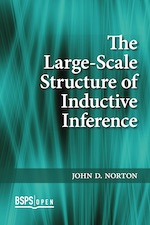
|
Here is a 2500 word précis of my Large-Scale Structure of Inductive Inference prepared for a book symposium at the Journal of General Philosophy of Science. There are also my responses to commentaries by Milagros Maribel Barroso Rojo, Job de Grefte and Julien Tricard.
|
"The Large-Scale Structure of Inductive Inference: A Précis" Journal of General Philosophy of Science, Online December 8, 2025. Download.
"Replies to Barroso Rojo, de Grefte, and Tricard" in Book Symposium, The Large-Scale Structure of Inductive Inference. Journal for General Philosophy of Science, Online 11 December, 2025. Download.
|

|
In the material theory of induction, inductive inferences are
warranted by domain specific facts. Those facts are in turn
supported by further inductive inferences. This volume examines the
large-scale structure of the resulting tangle of inductive
inferences and relations of inductive support. |
The Large-Scale Structure of Inductive Inference. BSPSopen/University
of Calgary Press, 2024. Download
(Sequel to the earlier volume, The
Material Theory of Induction.)
|
 |
Mousa Mohammadian, William Peden and Elay Shech have each written
commentaries on The Material Theory of Induction in a
symposium organized by the journal, Metascience. Here is
my responses and my thanks to them. |
"Author’s response to Mousa Mohammadian, William
Peden and Elay Shech," Symposium on The Material Theory of
Induction, in Metascience.31
(2022), pp. 317–323. Download. |
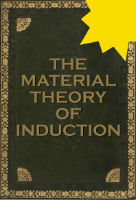
|
A special
issue of Studies in History and Philosophy of Science
is on the material theory of induction and has 14 papers. Here are
my responses to those papers. |
"Author's Responses," Studies in History and
Philosophy of Science, 85 (2021), pp.
114–126. Download. |
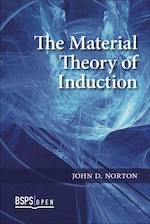 |
Which are the good inductive inferences or the proper relations of
inductive support? We have sought for millennia to answer by means
of universally applicable formal rules or schema. These efforts have
failed. Background facts, not rules, ultimately determine which are
the good inductive inferences. No formal rule applies universally.
Each is confined to a restricted domain whose background facts there
authorize them.
The Material Theory of Induction.
Contents:
Preface
Prolog
1. The Material Theory of Induction Stated and Illustrated
2. What Powers Inductive Inference?
3. Replicability of Experiment
4. Analogy
5. Epistemic Virtues and Epistemic Values: A Skeptical Critique
6. Simplicity as a Surrogate
7. Simplicity in Model Selection
8. Inference to the Best Explanation: The General Account.
9. Inference to the Best Explanation: Examples
10. Why Not Bayes
11. Circularity in the Scoring Rule Vindication of Probabilities
12. No Place to Stand: the Incompleteness of All Calculi of
inductive Inference
13. Infinite Lottery Machines
14. Uncountable Problems
15. Indeterministic Physical Systems
16. A Quantum Inductive Logic
Epilog |
The Material Theory of
Induction. BSPSOpen/University of Calgary
Press, 2021.
Open access. FREE download under a CC-BY-NCND 4.0 Creative Commons
license.
|
 |
The measure problem in eternal inflationary cosmology arises
because we try to force a probability distribution where it is not
warranted. The problem is solved by asking which inductive logic is
picked out by the background conditions. That logic is the same
highly non-additive inductive logic as applies to an infinite
lottery. |
"Eternal Inflation: When Probabilities Fail,"
Prepared for special edition "Reasoning in Physics," Synthese,
eds. Ben Eva and Stephan Hartmann. Draft. |
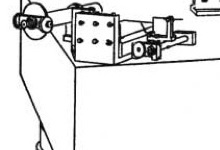 |
The replicability of experiment, the gold standard of evidence, is
not supported by a universal principle of replicability in inductive
logic. A failure of replication may not impugn a credible
experimental result; and a successful replication can fail to
vindicate an incredible experimental result.The evidential import of
successful replication of an experiment is determined by the
prevailing background facts. Their success has fostered the illusion
of a deeper, exceptionless principle. |
"Replicability of Experiment," Theoria,
30(No. 2) (2015), pp. 229-248. Download. |
| 1,
3, 5, 7, ... ? |
Standard accounts of inductive inference are unstable, meriting
skeptical attack. They have misidentified its fundamental nature.
Accounts of inductive inference should not be modeled on those of
deductive inference that are formal and non-contextual. Accounts of
inductive inference should be contextual and material. I summarize
the case for a material theory of induction. |
"A Material Defense of Inductive Inference,"
in Stephen Hetherington and David Macarthur, eds., Living
Skepticism: Essays in Epistemology and Beyond. Leiden: Brill,
2022. pp. 54-72.Download. |
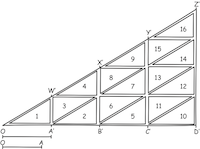 |
The inductive problem of extending the sequence 1, 3, 5, 7, is
solved when these numbers are the ratios of the incremental
distances fallen in successive unit times. The controlling fact is
Galileo's assumption that these ratios are invariant under a change
of the unit of time. It admits few laws and only one is compatible
with the two-numbered initial sequence 1, 3. |
"Invariance of Galileo's Law of Fall under a Change
of the Unit of Time." Download. |
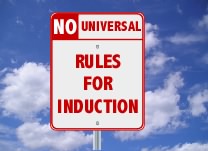
|
Here is a systematic survey of the many accounts of induction and
confirmation in the literature with a special concern for the basic
principles that ground inductive inference. I believe it is possible
to see that all extant accounts depend on one or more of three basic
principles. |
"A Little Survey of Induction," in P. Achinstein,
ed., Scientific Evidence: Philosophical Theories and
Applications. Johns Hopkins University Press, 1905. pp. 9-34.
Download. |
|
I do not believe, however, that any of these principles works
universally and can ever be applied without some sort of adjustment
to the case at hand. This has led to a proposal about the nature of
inductive inference. I urge that we have been misled by the model of
deductive inference into seeking a general theory in which inductive
inferences are ultimately licensed by their conformity to universal
schemas. Instead, in a "material theory of induction," I urge that
inductive inference is licensed by facts that prevail in particular
domains only, so that "all induction is local." |
"A Material Theory of Induction" Philosophy of
Science 70(October 2003), pp. 647-70. Download.
|
|
In a material theory of induction, inductive inferences are
warranted by facts that prevail locally. This approach, it is urged,
is preferable to formal theories of induction in which the good
inductive inferences are delineated as those conforming to some
universal schema. An inductive inference problem concerning
indeterministic, non-probabilistic systems in physics is posed and
it is argued that Bayesians cannot responsibly analyze it, thereby
demonstrating that the probability calculus is not the universal
logic of induction. |
"There are No Universal Rules for Induction," Philosophy
of Science, Philosophy of Science, 77
(2010) pp. 765-77. Download |
|
|










